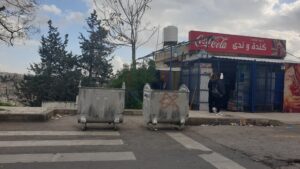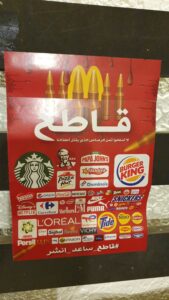by Mohammad Shamandafar* (from Amman)
“This year Ramadan meant only sadness and shame.” A few days before the end of Eid al Fitr, which concludes the most important holiday for Muslims, R. is disappointed and angry. “Rather than spending on iftars (the sunset meal that marks the end of the daily fast, ed.) and for the Eid, we sent money to my sister, to help them get out of the hell of Gaza.” Of a family originally from Jaffa, but born in Balbeek in Lebanon and raised in Jordan, in Irbid, in the north of the country where he still lives, R. lost his brother-in-law as an airstrike destroyed their home, leaving behind a widow wife and three orphaned children. “They have been waiting at the Rafah crossing for two months, living in tents and with the little aid available. We’re trying to get them $20,000.” This is the price that an Egyptian agency has established for a safe escape and transport to Cairo for her and her children.
R.’s story is not an isolated case in Jordan. With over 60% of citizens with Palestinian origin of a population of over 11 million people, there are many experiencing firsthand the ongoing massacre in Gaza. In practice, one in two Jordanians has direct or indirect family ties with Palestine. Developed over the past 76 years, these relationships are the result of multiple exoduses between 1948 – the Nakba and the subsequent birth of the State of Israel – and 1967 – the year of the Six Day War – two of the main historical moments shaping the history of the two banks of the Jordan River. On the east side, contrary to what happened in the rest of the Arab countries, the Hashemite Kingdom has granted citizenship to the Palestinian refugees, with the exception of the ones coming from Gaza. Thise, whose descendants today number around 2.4 million, are excluded from most public services and live of the aid from UNRWA, the agency dedicate to the assistance of Palestinian refugees in the whole region, recently under the spotlights once again. It is thus not surprising that the largest street demonstrations in the Middle East took place in Jordan, not only against the Israeli and US embassies, but also against the Jordanian authorities, towards which the population is increasingly expressing dissent.

Led by King Abdullah II, while at a diplomatic level it continues to condemn Israel and to facilitate the access of aid to Gaza, the Jordanian government has left relations with Tel Aviv and Washington intact. Founded on long-standing political-military agreements that make Israel and the United States key allies of Amman, the contradictions of these relations have emerged even more clearly in recent days. While various demonstrations and sit-ins were taking place during the Eid, the king gave orders to the army to intercept in the Jordanian airspace the drones and rockets launched by Iran towards Israel on the night of April 13th. In the context of an unprecedented escalation in the region, Amman’s direct intervention, perceived as helping Israel, risks to further worsen its relationship with the population, especially in a context in which pro-Palestinian demonstrations are heavily limited.
“Since last 7th October there have been at least 1,500 arrests. That is a very worrying sign.” F., from a Palestinian family but born in Kuwait, is a long-time activist in Jordan. In the past five months he has been obliged to report all the activities he organizes to five different security departments. Failing to do so would cost him a fine of two thousand dinars (around three thousand euros) or imprisonment. We met him at a well-known cultural centre in Amman, a stone’s throw from the souq (popular market, ed.), where despite a considerable drop in tourism in the past months, there is a coming and going of visitors, mostly unaware of the air of excessive control that reigns in the Jordanian capital. “The government is spreading a climate of fear that I don’t know where it will lead. There have always been demonstrations against the Israeli occupation, just as the limitations imposed by the authorities in the name of ‘public security’ are not new. But this time it is different, especially after the adoption of the “cyber law”. Approved last August and criticized for its discretion, the law gives the police a greater control over mobile communications and media, and can intervene if “any action” could cause “risks to safety and decency”. Because of this law, F. has been reported to the authorities for having participated in an online discussion about the boycott of goods and brands that support the Israeli economy, a campaign which from 7th October onwards extended also to companies symbolizing the presence American in Giordana (see photo.). “Last November I was reported for ‘scandal’ by unknown persons. I attended multiple hearings, but the charges always remained vague. I haven’t heard from the court for weeks now, I’ll be either acquitted or forced to serve two years in prison, unless I can pay two thousands dinars.”
Who instead ended up in prison, even if for two days, is E., activist of the Jordan Youth Gathering to support Resistance group, which for months has been organizing demonstrations every Friday at the border with the West Bank to ask the government to stop trade with Israel. This, dating back to the 1994 peace agreement between the two countries, has aroused growing frustration among the Jordanian population following reports that Israel is managing to overcome the trade blockade in the Red Sea thanks to Amman. “After years of activism, this is the first time we see our government so determined to limit freedom of expression. I managed to get away from prison thanks to with my second Swiss passport, which allowed me also to refuse to sign the declaration of ‘good faith’.” This is a sort of vague self-certification in which the accused undertakes to no longer participate in demonstrations that threaten public order. “What worries me the most is the general anger among the people, and also a certain radicalization, which hasn’t been seen for years.”

Among other things, E. refers to a general sympathy in Jordan for Hamas, and to some more explicit than usual anti-Israel symbols becoming popular also in the richer and more moderate western part of Amman. For a country that after the 1970 civil war did everything to ward off the influence of armed groups in the country, seeing Israeli flags drawn on garbage cans and slogans used by Hamas in recent months represent unusual facts. However, these must be contextualized in light of the situation in Palestine in recent years and the normalization of relations with Israel carried out by the governments of Saudi Arabia, the Emirates and Qatar and with which Jordan has aligned. “Although there is no support for the ideology of Hamas in our movement, the latter is considered one of the very few remaining attempts to resist Israel’s occupation.”
With an economy driven by US aid (around 3.8 billion per year) and tourism (down by around 2.8 billion since 7th October, according to unofficial estimates), the nearby war and the resulting social repercussions do not represent a positive sign for one of the few ‘stable’ countries in the region. Among these, it should not be forgotten that Jordan hosts almost 4 million refugees, including Syrians (1.3), Sudanese, Iraqis and Yemenis, without forgetting the Palestinians registered with UNRWA, which, if it will be dismissed, would mean another 2.4 millions of people to be provided with basic services, in a general situation of reduction of humanitarian funds for Amman by the international community. “Contained during the Arab Spring – for E. – the regional chaos generated by Israel in Gaza and the way the kingdom is responding can result in unpredictable consequences.”
On the cover photo, view of Amman © Mohammad Shamandafar
* Names have been limited to initials at the request of the interviewees. The article has appeared first in Italian on April 16th for the magazine Altreconomia
























